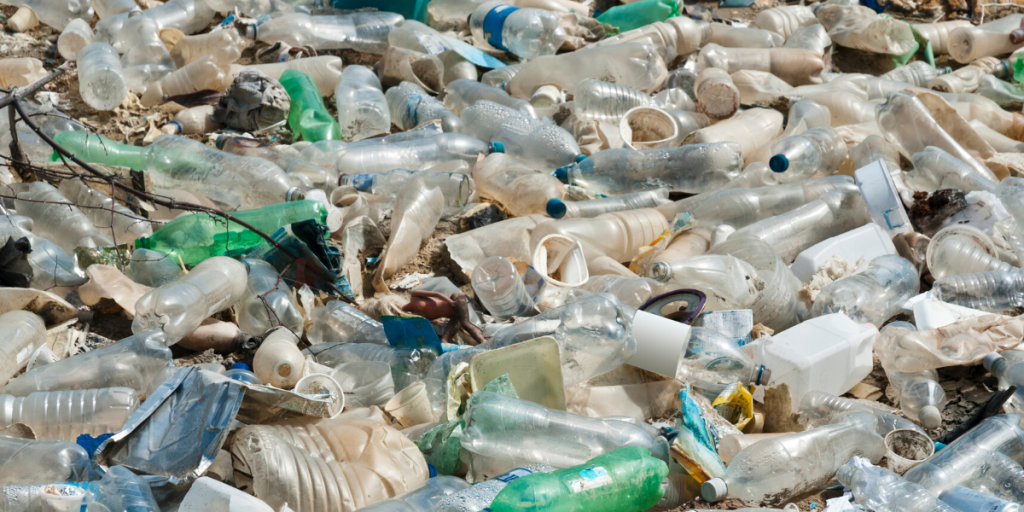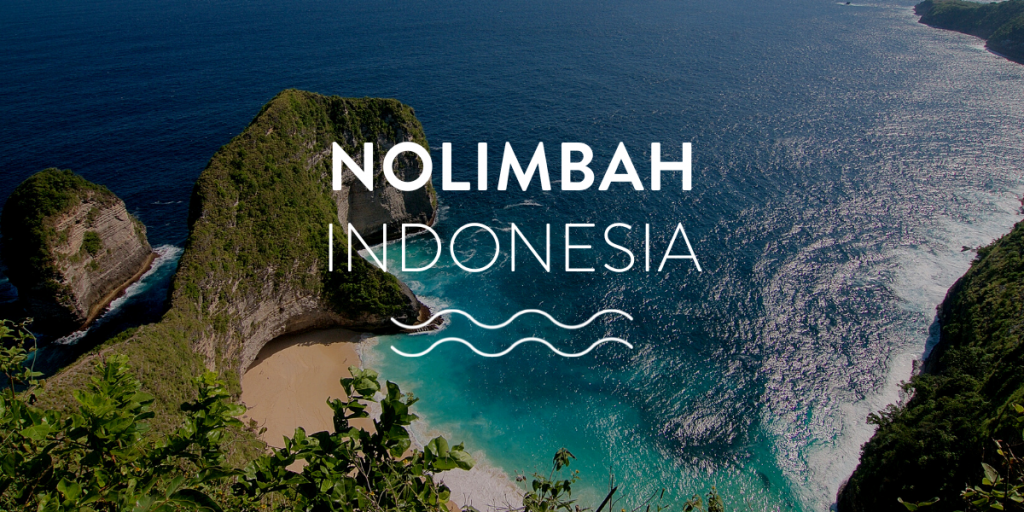The plastic crisis in our oceans is no joke– but there are brilliant people coming up with innovative and creative solutions every day, like NoLimbah! In Indonesia, where waste management issues dramatically impact trash pollution into waterways, there is a new app underway that is paying people to pick up and dispose of garbage!
We interviewed Charlotte Charbit, founder and CEO of NoLimbah. Read on to discover how this app is using ride-sharing and food-delivery technology to revolutionize waste collection in Indonesia.
Interview with Charlotte Charbit, founder and CEO of NoLimbah
How is mismanaged waste impacting Indonesians?
In 2020, 70% of generated waste in Indonesia was mismanaged. This terrifying figure includes more than 60% of generated waste that was not collected at all!! What does this mean for Indonesians? What options are they left with when their waste is not collected? Households can either:
- Burn their waste (47% of generated waste), which generates toxic fumes and causes public health issues (an increase in the risk of heart disease, aggravation of respiratory issues such as asthma, cause of nausea or headaches, and damage to the nervous system)
- Discard their waste into nearby rivers (14% of generated waste), which degrades the water quality with toxic compounds. Also, plastics end up in our oceans and break down into microplastics, thus entering the food chain, and ending up in people’s food
- Or dump their waste illegally. The chemicals and non-biodegradable materials in the waste affect the physical environment and the waterways by contaminating groundwater and soil
What inspired the idea for the app technology behind NoLimbah?
What inspired the technology behind NoLimbah was how food delivery and ridesharing mobile apps have become predominant and almost necessary to most people’s everyday lives. They expect convenience and rapidity from most services.
Applying this technology to a service that is a basic need, namely waste collection, and therefore must be offered to everyone, coupled with incentivization through financial reward to encourage people to change their behaviour towards waste management, is what NoLimbah is all about. Our solution aims at making people’s lives easier, while rewarding them for disposing of their waste responsibly.

How is NoLimbah different from traditional waste management in Indonesia?
The gap in waste collection in the country (61% not collected) led us to look into the existing collection system in order to find ways to optimize it. The public waste collection as it is in Europe, the US, Australia, or New Zealand barely exists in Indonesia. To fill this gap in the market, private collection services arose, against a monthly payment by households. However, a lot of Indonesians cannot afford expensive subscriptions, or do not want to pay for a service that they consider a basic need (justifiably so).
Another solution that arose to solve this problem is the informal collection system. The informal collectors, called Pemulung in Indonesia, offer to pay households for the value of their recyclable waste. Unfortunately, the Pemulung lack visibility, and their work is often undervalued and looked down upon. NoLimbah provides a platform to connect households to Pemulung, with an app as easy as food delivery or ride-sharing. It aims to shed light on Pemulung to give them an appreciation for their hard work, while also providing a simpler and more incentivized solution to households for their waste collection. Instead of paying for a waste collection service, like a lot of households currently do, they will get paid for their inorganic waste contribution.
How are people actually paid for disposing of their household waste properly?
Getting paid for household waste often seems completely alien to a lot of people, especially to western people, as it is not such a common practice in their countries! To understand this system, we need to accept the premise that there is an already existing waste economy that NoLimbah is only optimizing. Recyclable waste generated by households has a low market value that is based on the material types (plastics, metal, paper/ cardboard, glass…), the quantity (10kg of plastics will be worth more money than 2kg of plastics), and the cleanliness (clean waste is worth more money than dirty waste). Informal waste collectors offer households to buy their recyclable waste based on these criteria. The reason why they have an interest in buying these recyclables at a low price is that they are reselling them with an added margin to recycling facilities. NoLimbah is optimizing the existing system by being the middleman that connects the different stakeholders better!
How did NoLimbah do during Beta testing?
Our team tested the Beta version of our mobile app in Ayunan village, Bali. The authorities of the village are planning great things for their community and want to reduce mismanaged waste. They trusted NoLimbah to increase the collection rate in the village, in collaboration with the local informal waste collectors (we always favor local collectors). Close to 1 ton of recyclable waste has been collected through the NoLimbah app, over the course of 4 months of testing on and off, including about 60% of the collections that were considered sorted! (Meaning that users had separated their inorganic waste at home, making it easier for it to enter the recycling loop.) This is a great performance considering that, according to Indonesia’s Statistic Agency, in 2020, 81% of garbage in Indonesia was unsorted; 10% was sorted but ended up being mixed again; while only 9% was sorted and reused. Our achievement is even more significant in that it induces sustainable behavioural changes in households, which is notoriously very hard to get. We also care about organic waste management, and therefore we partner with the University Mahasaraswati Denpasar (UNMAS) which developed a program to educate local communities on how to make their own compost at home. This partnership allows our structures to provide an end-to-end waste management solution to villages.
What is your ultimate dream for Indonesia’s waste management systems?
Our dream is to see the waste management system in Indonesia being fully optimized, with local solutions that are replicated in different places and interconnected between them. The beauty of NoLimbah is that our solution favors local stakeholders while being replicable to all places in Bali, Indonesia, and even in similar markets in Southeast Asia, Africa, or South America! We dream of seeing more recognition and appreciation for informal waste collectors, so that their contribution could be way more impactful throughout Indonesia. As of now, they are responsible for 7% of the total collection in the country, and that is without any fully optimized system. Imagine if they were given more credit and trust for their hard work. They could increase that collection rate significantly.
How can people help support NoLimbah’s mission?
These are early days for us, but we’re planning big things. To make NoLimbah happen, we will need the support of all earth and ocean lovers! To allow our team to keep up the great work, people can donate to our crowdfunding campaign, and share it with as many people as possible in their surroundings! Sometimes, it takes just one person that loves our cause to make a difference!! It isn’t so much about the amount of money donated, but more about the number of supporters that we get. Little individual contributions really add up! It is the famous snowball effect! People can also follow us on our Instagram (@nolimbah_) and sign up for our mailing list to know more about us!
What is the most fun thing you’ve experienced along this journey?
We love working onsite in the villages to visit our beta users, and share great moments with the local community, collectors, our team, and partners! But our favorite moments are when we work alongside the collectors, and we see them taking true pride in what they do. Seeing them get excited about the added value we bring to them is a big part of what gets us going. It doesn’t get any more rewarding than that!


